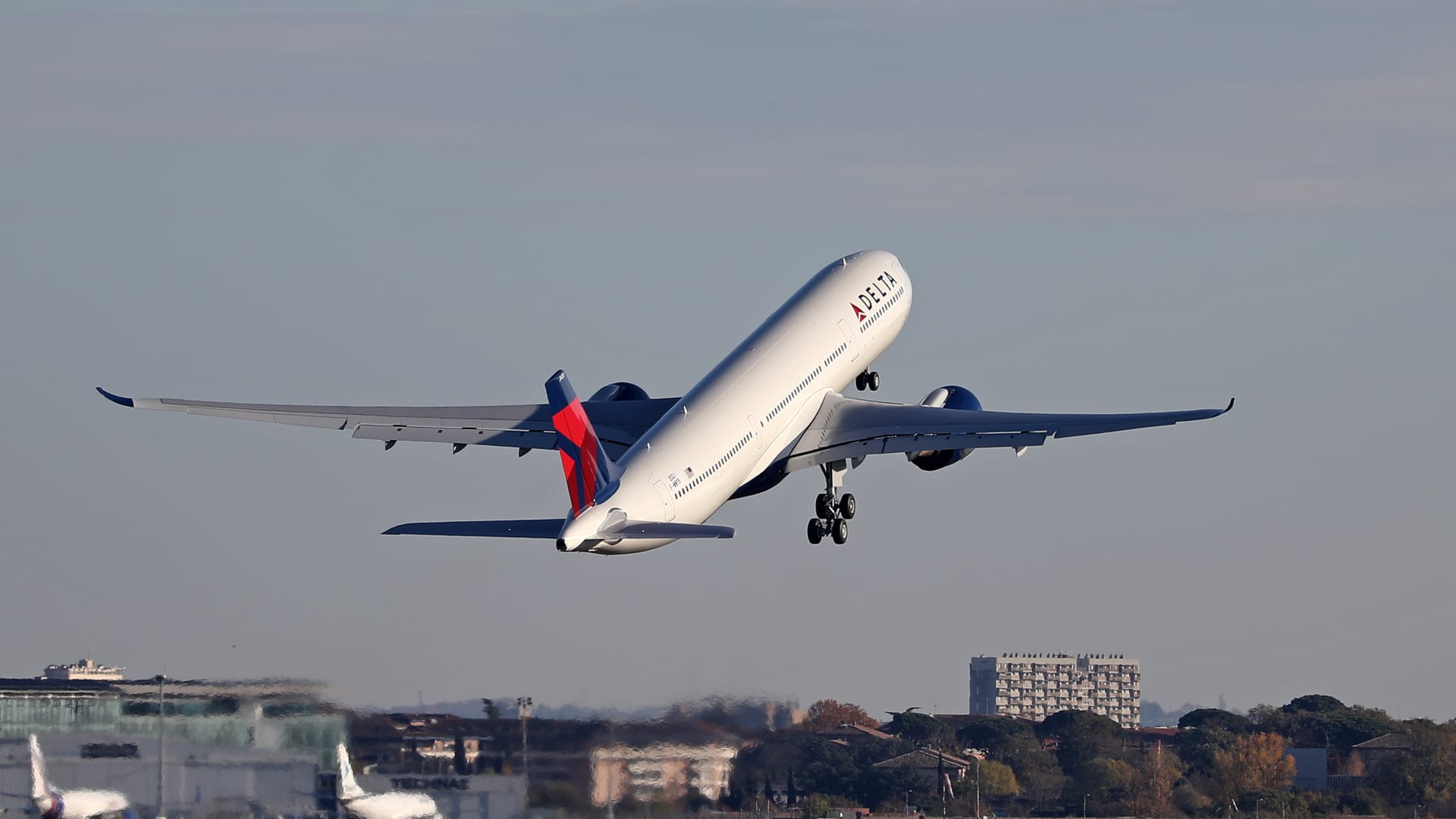Delta Air Lines closed out the year by doubling its quarterly profit as travel demand, particularly for international trips, helped drive record revenue in 2023. CEO Ed Bastian said continued strong travel demand could boost earnings this year.
Still, the company cut its full-year profit outlook from a previous forecast, and the stock fell 9% on Friday, with other major carriers’ shares also tumbling.
Delta on Friday forecast adjusted earnings per share of between $6 and $7 for 2024, below the more than $7 a share the carrier predicted last year. Delta posted adjusted earnings of $6.25 a share in 2023.
“Business is going great. Just go to any airport,” Bastian told CNBC in an interview.
Delta said it expects revenue in the first quarter of 2024 to increase 3% to 6% over the prior-year period. The carrier forecast earnings per share of between 25 cents and 50 cents, within the range analysts are projecting, according to LSEG, formerly known as Refinitiv.
The winter is typically one of the slowest periods for air travel. Airlines have also been navigating cooling fares and higher expenses such as fuel and labor.
Delta is the first of the major U.S. carriers to report fourth-quarter results.
Here’s how the company performed in the three months ending Dec. 31, 2023, compared to Wall Street expectations based on consensus estimates from LSEG:
- Adjusted earnings per share: $1.28 vs. $1.17 expected.
- Adjusted revenue: $13.66 billion vs. $13.52 billion expected.
Delta reported $2.04 billion in net income for the last three months of 2023, up from $828 million a year ago. Revenue rose 6% to $14.22 billion from a year earlier.
Stripping out one-time items, Delta posted adjusted revenue of $13.66 billion, slightly ahead of LSEG estimates. Adjusted earnings per share of $1.28 topped analysts’ estimates for $1.17 a share in the fourth quarter.
Delta’s president, Glen Hauenstein, said in a news release that the carrier has seen strong demand for international travel that has outpaced U.S. flight revenue, but there has been “a positive inflection” for domestic travel of late. Some carriers have struggled with oversupply of domestic flights in recent months, forcing them to discount off-peak fares more than usual.
Delta and other large U.S. carriers have benefited from offering sprawling international networks, where many high-priced tickets were sold last year.
Overall, record numbers of people paid to sit in Delta’s higher-priced cabins such as first class or premium economy in the last quarter, driving revenue from premium cabins up 15% during the period, outpacing 10% revenue growth from standard coach seats.
Corporate travel demand is also improving, Delta’s CEO said, pointing to growth from the technology sector as well as auto and entertainment industries, whose workers ended labor strikes after reaching new contracts last year. Delta has major hubs in Detroit and Los Angeles, and strikes had dented demand in 2023.
But the carrier still faces challenges with the aerospace supply chain for parts and repairs, Bastian said.
“It’s taking longer to fix planes and taking longer to put them back into service,” he said. Aircraft repairs and the parts supply chain are the biggest parts of the business that haven’t returned to pre-pandemic levels, Bastian said.
“All the suppliers in our industry lost a tremendous amount of experience due to the pandemic, and it’s taking time to get that back,” Bastian said during an earnings call on Friday.
The airline industry was rocked in recent days when a door plug blew out of a Boeing 737 Max 9, an Alaska Airlines flight, when the plane was in the air at about 16,000 feet. The Federal Aviation Administration grounded those Boeing planes a day later, affecting some 170 planes, including those at United Airlines and Alaska Airlines, which have canceled hundreds of flights as a result.
Delta doesn’t have any Max 9s in its fleet, and Hauenstein said on the earnings call that the company is seeing a small increase in bookings in the Seattle area, where Alaska is based.
Delta does have dozens of 737 Max 10 aircraft, which the FAA hasn’t yet certified, on order. It isn’t yet clear whether the Alaska incident will mean further delays to the certification of the Max 10s.
Delta also announced Friday an expected order for 20 wide-body Airbus A350-1000 aircraft, with deliveries starting in 2026.
Don’t miss these stories from CNBC PRO:
Image and article originally from www.cnbc.com. Read the original article here.

